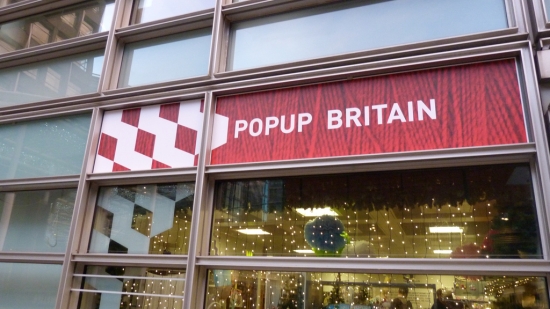With property on the high street becoming increasingly popular with bookmakers and pawn shops rather than the traditional retailers, those attempting to increase town centre footfall have found themselves faced with something of a dilemma. While it is certainly true that the rapid spread of gambling chains allow vacancy rates to remain relatively stable and enable landlords to collect rent, there is a risk of driving shoppers elsewhere.

Yet there could be a way to ensure that the high street remains appealing to a broad consumer base by diversifying the uses of unoccupied commercial space. This is exactly what three filmmakers from Manhattan have done – namely, by turning an unused freight elevator into the world’s smallest museum.
Museum is a free, non-profit organisation which aims to showcase the “collecting spirit” according to co-founder Alex Kalman. As such, the curiosity contains an eclectic mix of items including Disney-themed bulletproof backpacks, several pieces from a fake Mars excavation and an exhibition by industrial designer Tucker Viemeister which compares toothpaste tubes from around the globe.
Mr Kalman spoke of the message behind the space, and explained why he finds the pieces the founders choose to exhibit so important for the modern day street.
He said; “For us, Museum was about creating an institution that celebrates the extraordinariness of the seemingly ordinary.
“You can obviously learn a lot about the world by reading the newspaper every day, watching movies or studying political science; but you can also learn a lot about the world by looking at the smallest things that cultures create and seeing the similarities and differences between them.”
The tiny space is only open to the public for a total of 16 hours every week – during the day on Saturdays and Sundays in order to take advantage of passing crowds with plenty of free time – yet the frontage is sealed by glass doors and lit at all times so passers-by can view the exhibit. Furthermore, interested parties can call a toll-free number in order to gain information about the 15 collections.
The idea behind Museum is certainly one which could be adapted in order to draw higher volumes of traffic to the high street. The concept is certainly workable – after all, pop-up shops and shop window exhibitions have become hugely popular as retailers flee unprofitable areas of towns so there is no reason an art gallery or curiosities exhibition would not enjoy similar success.
If alternative uses for empty commercial space were trialled across the UK, adjoining businesses and especially landlords could reap the benefits of the initiative. Perhaps this could even signal a new, and potentially more secure, era for the high street – one where there is greater diversity and fewer empty properties.
Do you think ventures of this kind would be met with approval by UK consumers, or are there better ways in which small areas of commercial space could be used?
Previous Post
UK Farmland Forecast to Triple in Value